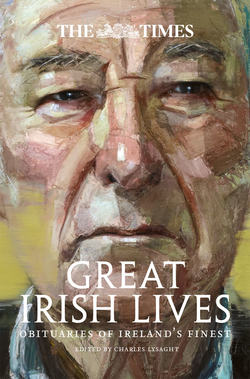Читать книгу The Times Great Irish Lives: Obituaries of Ireland’s Finest - Charles Lysaght - Страница 20
ОглавлениеMICHAEL DAVITT
31 MAY 1906
MR MICHAEL DAVITT died early this morning at a private hospital, in Lower Mount-street, Dublin, where he had been lying in a critical condition for some days. Michael Davitt, probably the most resolute and implacable enemy of the connexion between Great Britain and Ireland that has appeared in modern time, was born at Straid, a small village in county Mayo, in March, 1846, a few weeks before the birth of Charles Stewart Parnell, his associate in after life, though coming from a very different social stratum. Davitt’s father was a petty peasant farmer, who was evicted in 1851 for non-payment of rent, which, however, it is alleged, had not been raised during the period of his tenancy. The family then migrated to Lancashire, and settled in the small manufacturing town of Haslingden, where the boy found employment in a cotton mill, and, though a Roman Catholic, got his elementary education at a Wesleyan school. When he was 11 years old a machinery accident deprived him of his right arm, but he got casual occupation as a newsboy, as an assistant letter-carrier, and ultimately as an employé in a small printing office. Reading widely if not wisely, he drifted rapidly into the ranks of the Fenian Brotherhood, which became actively aggressive in 1865. When an abortive attempt was made by the Fenians to capture Chester Castle, early in 1867, Davitt, according to an admiring biographer, “though unable to shoulder a rifle with his single arm, carried a small store of cartridges in a bag made from a pocket-handkerchief.” When the baffled band of conspirators broke up, Davitt escaped detection and returned to Haslingden, where he immediately resumed “active operations,” arranging for the secret export of firearms to Ireland. This led to his arrest in 31 May, 1870, on a charge of “treason felony,” on which he was tried at the Old Bailey, with a confederate, before Lord Chief Justice Cockburn, and convicted, without hesitation, by the jury. A letter in Davitt’s handwriting was produced and sworn to, a passage in which, the Chief Justice said, in passing a sentence of 15 years’ penal servitude, showed that there was “some dark and dangerous design against the life of some man.” Towards the close of 1877, however, Davitt was released, after serving half of his sentence in Dartmoor Convict Prison, and a few months later he visited the United States, where his mother, herself of American birth, though of Irish blood, had settled with other members of the family. Before crossing the Atlantic he had rejoined the “Irish Republican Brotherhood,” the branch of the Fenian organization established in Ireland, and was elected a member of the “Supreme Council,” which practically admitted him to confidential relations, as the Special Commission found, with the Clan-na-Gael and the whole body of American-Irish Fenians. He told the Commissioners himself that he had “a well-defined purpose” in visiting the States, which, as his further evidence showed, was to “make the Land Question the stepping-stone to national independence.” With another Fenian and ex-convict, John Devoy, Davitt, during his stay in America, studied the methods of revolution through agrarian agitation devised 30 years before by Fintan Lalor, and on his return to Ireland the confederates launched the “new departure,” with the assent and co-operation of the emissaries of the Clan-na-Gael, the aim being to combine the physical force faction and the agrarian revolutionists in a common policy, embracing an attack on rents and the acquisition of complete control over local elected bodies. Into this policy Mr Parnell was gradually drawn, and the Land League, originally started at Irishtown, in Mayo, early in 1879, developed, half a year later, into a “national organization,” with its seat in Dublin, Parnell as president, and Davitt as one of the secretaries. In view of the anti-clerical developments of Davitt’s later career, it is worthy of notice that the Irishtown meeting was called to denounce a landlord who was also a parish priest, one Canon Burke. Parnell’s visit to America, his violent speeches there, the assurances given to the physical force party that their methods were not to be interfered with were among the first results of the foundation of the Land League. Davitt himself crossed the Atlantic in May, 1880, just after the general election, and for several months acted “as the link between the two wings of the Irish party,” explaining to the Fenians that the aims of the two sections did not clash and that they might be of mutual aid to one another.
